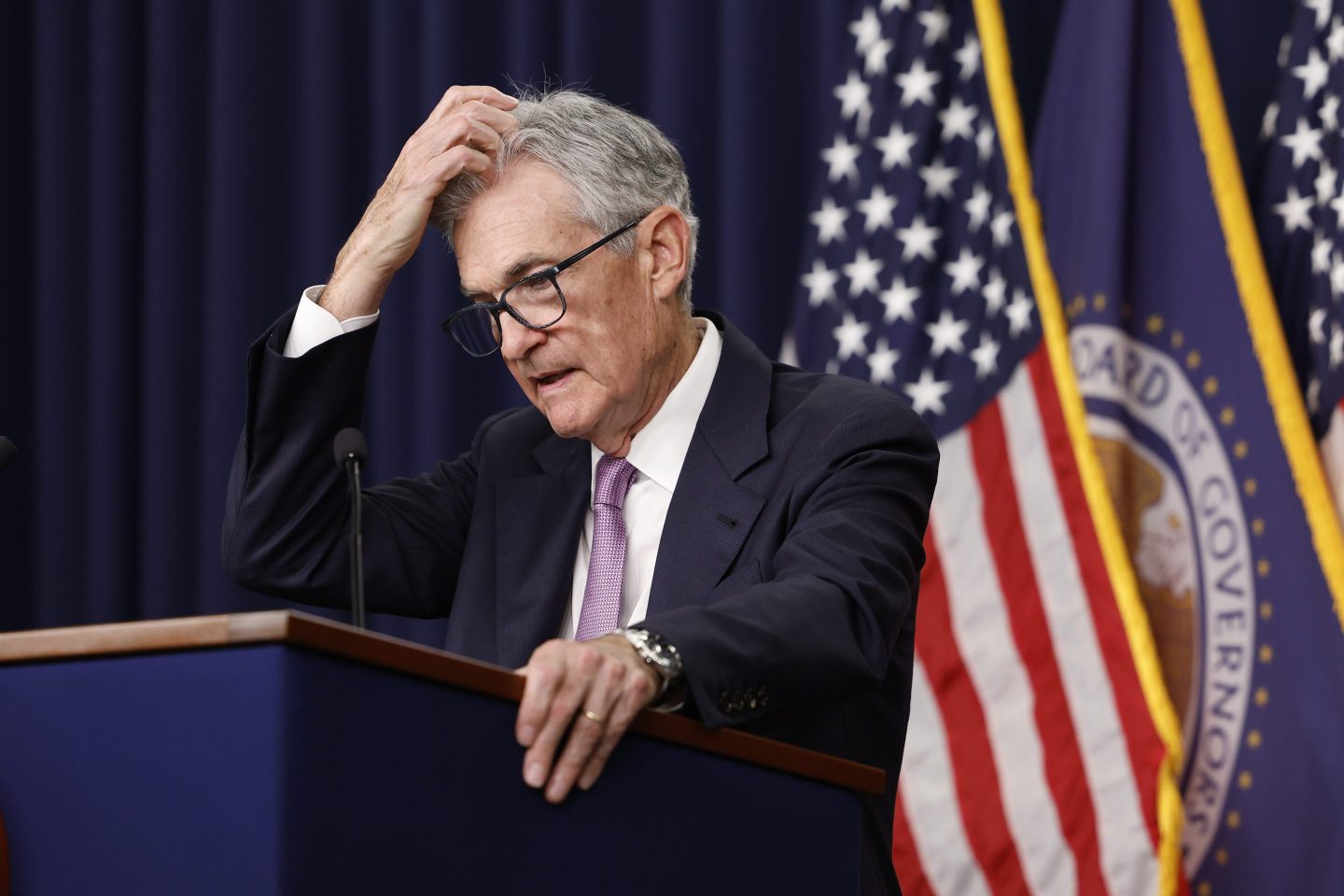Good morning
The Fed cut interest rates by half a percentage point yesterday—the first cut in four years and double the 25 basis points that many expected from the central bank. And yet the markets dipped down, perhaps because of a perceived disconnect between Fed Chair Jerome Powell’s sunny prognosis that “the economy is in good shape” and the committee’s bold action that suggests a possible recession on the horizon.
Whatever the reason, we do know that rates tend to move higher when inflation is a problem and move lower when central bankers want to encourage lending, consumption and job growth. A weakening job market was certainly a factor in yesterday’s cut.
But a conversation yesterday with FedEx CEO Raj Subramaniam at Dreamforce made me wonder about the possible decoupling of interest rates and hiring in the coming years. As companies start to double down on AI and discover meaningful productivity gains, will prosperity and job growth remain linked? Kai-Fu Lee, a VC and computer scientist who has been on the front lines of AI for years, believes it could displace 50% of jobs by 2027.
Since replacing founder Fred Smith as CEO about two years ago, Subramaniam has stepped up the transformation that he’d been driving as president and COO. Having a digital twin of its operations, for example, has enabled FedEx to better predict and adapt to weather events—which means snowstorms in Memphis that cost the company $300 million a few years ago now cost a fraction of that because of better planning. During our on-stage conversation, Subramaniam announced the launch of fdx.com, a data-driven commerce platform that lets customers leverage insights to “make supply chains smarter for everyone.”
We talked about the culture of FedEx and how it’s hiring a broader array of tech talent and investing in up-skilling. But we didn’t talk about how the rise of automated facilities, autonomous trucks and pilotless planes could lead to a safer and faster global logistics giant with fewer people. That’s a structural shift across many industries where interest rates may not hold much sway.
More news below.
Diane Brady
diane.brady@fortune.com
Follow on LinkedIn
TOP NEWS
A majority of CEOs reward in-person employees
A new KPMG survey of 400 U.S.-based CEOs found that 86% said they would reward in-person employees with favorable assignments, raises or promotions." While CEOs “increasingly favor a comprehensive return to office, the need for flexibility still holds,” KPMG CEO Paul Knopp wrote in the report. Fortune
23andMe's board resigns
All seven independent board members of 23andMe resigned on Tuesday following an extensive dispute with CEO Anne Wojcicki, who wants to take the struggling DNA testing company private. Wojcicki said she was "shocked and disappointed" by the decision. Fortune
Teamsters don't endorse
The International Brotherhood of Teamsters will sit out the 2024 U.S. presidential election in a historic decision to not endorse either candidate. The union said neither Kamala Harris nor Donald Trump had sufficient support from its 1.3 million members. Fortune
AROUND THE WATERCOOLER
A message from American businesses: Don’t walk away from the UN by Whitney Y. Baird and Peter Yeo
Longtime China bull Ray Dalio fears economy faces problems as severe as Japan in 1990 by Christiaan Hetzner
Microsoft says Harris-Walz campaign is target of Russian disinformation crusade by Chris Morris
New in town Shark Tank billionaire shares what makes a deal golden for him by Chloe Berger
Jamie Dimon tells Gen Z to stop wasting its time on TikTok and read books instead by Eleanor Pringle
This edition of CEO Daily was curated by Joey Abrams.













